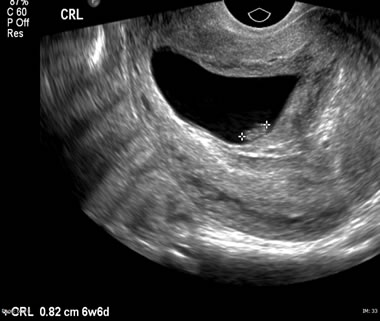Blog
Missed abortion
A retention or missed abortion does not result in a pregnancy being discharged for a fixed period after the embryo has died. The reason some dead embryos do not spontaneously abort is unclear, but the partitions in the uterine cavity may be related to these cases.
The main symptoms of termination of pregnancy in a patient are: 1. pregnancy tests become negative after a while, the pregnancy hormone beta HCG does not increase but decreases. 2. By ultrasound, the size of the embryo does not correspond to the gestational age of pregnancy and no fetal heart movements are detected. The most common reasons for delayed abortion come from a fertilized egg, most often due to the inability of the embryo to develop further. Some authors state that as many as 70% of all miscarriages result from an embryo abnormality. They occur as a result of chromosomal anomalies or as a result of adverse exogenous effects such as the harmful effects of x-rays or the effects of organic solvents and intoxication.
These abnormalities are manifested by the impaired development of the fertilized ovum, when normal growth of the trophoblast occurs, from which the fruits of the sheath and placenta develop, but no embryoblasts develop. This type of miscarriage is referred to as a blighted ovum or anemic pregnancy. If the embryo initially forms normally but ceases to register the heart action of the embryo, we are talking about a missed abortion. Most patients experience spontaneous miscarriages after some time, but the patients most often want the pregnancy removed after learning that the fetus has stopped developing. It is the responsibility of the physician to advise the patient on the extensive bleeding that may occur as a result of disturbed coagulation and infection factors that may occur in such pregnancies.
 34
34
 1500
1500
 5
5



